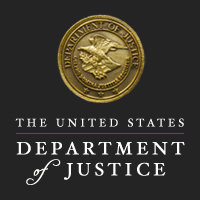NEW YORK
 The former head of global foreign exchange cash trading at HSBC Bank plc, a subsidiary of HSBC Holdings plc (collectively HSBC), was found guilty Monday of defrauding a HSBC client through a multimillion-dollar scheme commonly referred to as “front-running,” according to authorities.
The former head of global foreign exchange cash trading at HSBC Bank plc, a subsidiary of HSBC Holdings plc (collectively HSBC), was found guilty Monday of defrauding a HSBC client through a multimillion-dollar scheme commonly referred to as “front-running,” according to authorities.
Mark Johnson, 51, a United Kingdom citizen with residences both in the U.K. and the United States, was found guilty after a four-week jury trial of one count of conspiracy to commit wire fraud and eight counts of wire fraud.
Sentencing date has not been scheduled. Johnson was arrested on a criminal complaint in July 2016 and indicted in August 2016.
“The jury found that former HSBC banker Mark Johnson exploited the confidential information provided by a client of the bank to execute trades that were intended to generate millions of dollars in profits for him and the bank at the expense of their client,” said Acting U.S. Attorney Bridget Rohde of New York.
According to the evidence, on November and December 2011, Johnson cheated an HSBC client out of millions of dollars by misusing information provided to him by a client that hired HSBC to execute a foreign exchange transaction.
The transaction was related to a planned sale of one of the client’s foreign subsidiaries, according to officials.
HSBC was selected to execute the foreign exchange transaction – which was going to require converting approximately $3.5 billion in sales proceeds into British Pound Sterling – in October 2011.
HSBC’s agreement with the client required the bank to keep the details of the client’s planned transaction confidential.
Instead, the evidence indicated that Johnson misused confidential information he received about the client’s transaction to cheat the client out of millions of dollars.
Shortly before the transaction, which occurred in December 2011, Johnson and other traders acting under his direction purchased Pound Sterling for their own benefit in their HSBC “proprietary” accounts.
Johnson then caused the $3.5 billion foreign exchange transaction to be executed in a manner that was designed to “ramp,” or drive up, the price of the Pound Sterling, benefiting their proprietary positions and HSBC at the expense of their client.
As part of their scheme, Johnson and his co-conspirators made misrepresentations to the client about the transaction that concealed the self-serving nature of their actions.
In total, Johnson and the traders he supervised generated HSBC profits of roughly $7.5 million from the execution of the FX transaction for the victim company.

